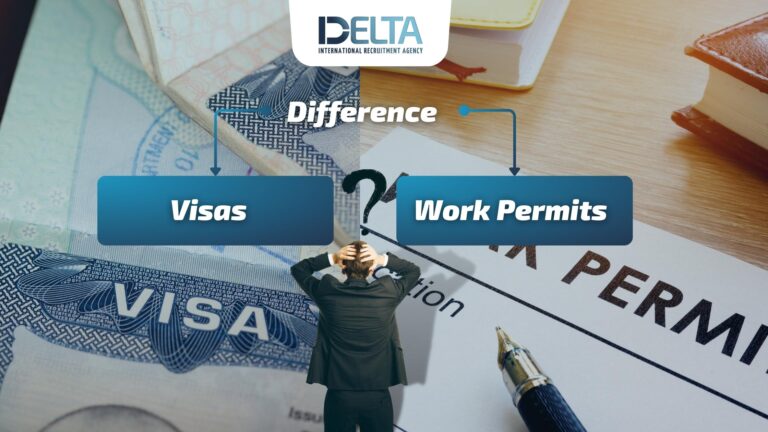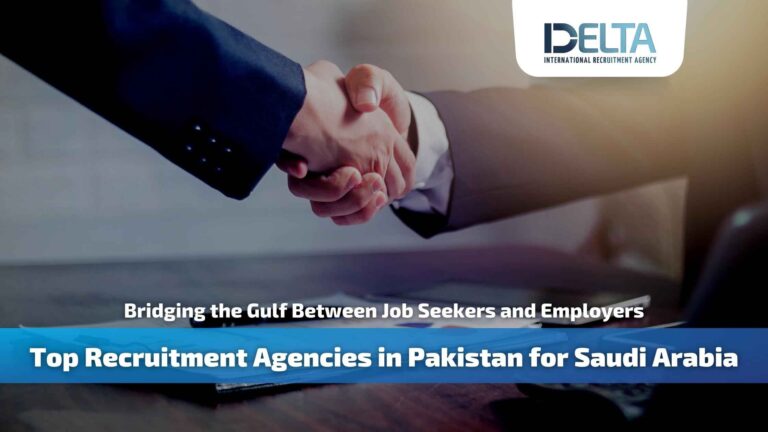Over the past few years, how we work has changed a lot. Due to Covid-19, more people are doing their jobs from different places around the world. This means companies and workers are interested in working in other countries, whether it’s for a short time or a long-term job.
But, there are challenges when it comes to working in another country. Visas and work permits are part of that challenge. Knowing what makes them different is super important for anyone who wants to work abroad or hire someone from a different country. It affects what kind of work you can do, how long you can stay, and what rules you need to follow.
Getting job opportunities in other countries is cool, but dealing with all the rules can be a lot. Before saying yes to a job in another country or offering one, it’s smart to know the legal stuff.
So, what’s the deal with visas and work permits? In this blog post, we’re going to dig into these two things and see how they matter for people working internationally.
Ever wondered about the difference between a work permit and a visa? It all comes down to the paperwork!
Visas and work permits are like special papers needed for working in another country, but they have different roles. Getting these papers can be a bit complicated and time-consuming. It involves filling out forms and gathering documents, and what you need depends on where you’re going and the kind of work you’ll be doing.
Visas act like short-term passes, allowing you to stay in another country for a while—whether it’s for a holiday, business, or studying. Some visas even let you work or get training, but it’s usually for a brief period. On the other hand, work permits are for the long run. They’re like special cards for those planning to work in another country for an extended period. Usually, you need both a visa and a work permit to work legally in a foreign place. So, visas and work permits are your keys to working adventures in other countries, but there’s some paperwork to tackle!
What Exactly Visas Are?
A visa is an official document given by a foreign country that lets a person come into and stay in that country for a specific time. There are different kinds of visas, like ones for tourists, students, or workers. Visas usually have a limited time and can be either single-entry or multiple-entry, meaning you can enter and leave the country multiple times while the visa is valid.
To get a visa, you need to meet specific requirements that depend on the country and the type of visa you want. Generally, you’ll have to show documents like a valid passport, proof that you have enough money to support yourself, and details about your travel plans. If you’re applying for a work visa, you might also need to provide a job offer letter or other documents related to your job.
Now What Are Work permits?
A work permit is like a special paper that lets someone from another country work in a specific place for a certain time. You usually need a work permit along with a visa to make your job legal in a foreign country. The rules for getting a work permit change based on which country you’re going to and what job you’re doing. Sometimes, especially in specific areas or jobs, they might ask for proof of experience, reports from your previous jobs, and even check your diplomas.
To get a work permit, you generally have to show some papers like a valid passport, proof of education or experience, and a letter or contract offering you the job. Sometimes, they might want you to do a health check and show that you don’t have a criminal record. In some cases, your employer might need to provide more papers or help with your work permit application.
How a Work Permit Works?
- Work permits let you work in another country legally.
- You usually need a work permit and a visa together.
- Rules for getting a work permit depend on the country and job.
- Sometimes, they ask for proof of experience, past job reports, and diploma validation.
- You need papers like a valid passport, education or experience proof, and a job offer.
- Health checks and criminal record checks might be needed.
- Employers might have to provide extra papers or support your work permit application.
- Visa and work permit rules can be complex and change a lot depending on the country and job.
How Delta International Recruitment Agency Supports Your Expansion into New Markets
Venturing into international business growth presents various challenges, from recruiting skilled talent to navigating diverse legal requirements. In the midst of this global expansion, collaborating with a Global Employment Outsourcing partner, such as Delta International Recruitment Agency, emerges as a highly effective strategy.
Here are key advantages to take into account:
Speeding Up Your Entry into New Markets
Expanding a business to different countries is a big job. It involves dealing with a lot of things like following rules, talking to employees in other countries, understanding taxes, and keeping up with immigration laws that often change. All of this can take your attention away from important business goals like studying new markets, finding talented people, taking care of customers, and making sure the business stays profitable.
Working with a partner who knows all about the rules you need to follow can make this process much easier. They help you understand what you need to do to follow the rules, so you can focus on the important parts of growing your business. This means you can quickly start working in new markets without getting too tangled up in all the challenges of managing a team around the world.
Cutting Additional Expenses:
Taking care of employment and following rules can get very complicated and expensive when you have to deal with many suppliers or hire HR experts. Even starting a branch in another country can end up costing a lot, making it hard for growing companies to handle their money well.
In these situations, using another company’s experience and setup can be a smart and affordable way to make things simpler and ease the financial pressure. Getting help from an outside source for your HR and employment needs means you only have to work with one company, saving you from having to keep an expensive team in your own office. Not only does this save money, but it also gives you access to special knowledge and resources worldwide, helping you reach your business goals.
Enhancing Productivity and Efficiency:
Making your work get done faster and smoother is important. When you get help from one provider for all your worldwide employment needs, it makes talking and working together easier. Having one person to talk to about everything speeds things up and makes sure any problems get sorted out quickly.
This way, you don’t have to deal with many different people, which makes it less likely for things to get mixed up or delayed. This approach makes your work more efficient and lowers the chances of misunderstandings or things taking longer than they should.
Ensuring Rule Adherence:
It’s super important for big global companies to get their team moving fast and following the rules. Sticking to the laws in each place is a must to steer clear of legal problems and mistakes in how things work.
How Outsourcing Specialists Help:
- A specialist in outsourcing employment globally, who knows the local rules well, can guide and support you.
- They make sure you follow all the rules while keeping the risks low.
- Partnering with a reliable outsourcing ally lets you concentrate on what your business is really about and sets you up for success in the big global marketplace.
Ensuring Accurate Payroll Management:
Managing payroll becomes a significant challenge for businesses without a permanent base in a foreign country. Maintaining in-house finance and international payroll teams is both costly and complicated, especially with evolving compliance requirements and limited legal knowledge.
An Employer of Record plays a crucial role in simplifying this process. They take charge of handling local and national income tax and social security payments on behalf of your local and international employees. This ensures compliance with local tax laws.
Additionally, they streamline the payroll process by deducting these amounts directly from your employees’ salaries and submitting them to the tax authorities. This not only makes payroll smoother but also reduces the risk of errors in the process of global expansion.
Empowering Your Business with Workforce Solutions
At Delta International Recruitment Agency, we firmly believe in the central role of people in all that we do. Our extensive global network spans over 3 offices across 15 countries, offering us profound insights into people’s needs and enabling us to deliver exceptional employee care.
As experts in handling immigration challenges, logistical hurdles, and intricate employment laws, we are committed to assisting our clients in navigating the intricacies of global expansion.
Are you eager to explore new markets but not quite prepared to establish a physical presence overseas?
Our Employer of Record (EOR) services are designed to offer tailored solutions, supporting your global expansion plans.
Professional Services: What is the difference between Visas and Work Permits?




